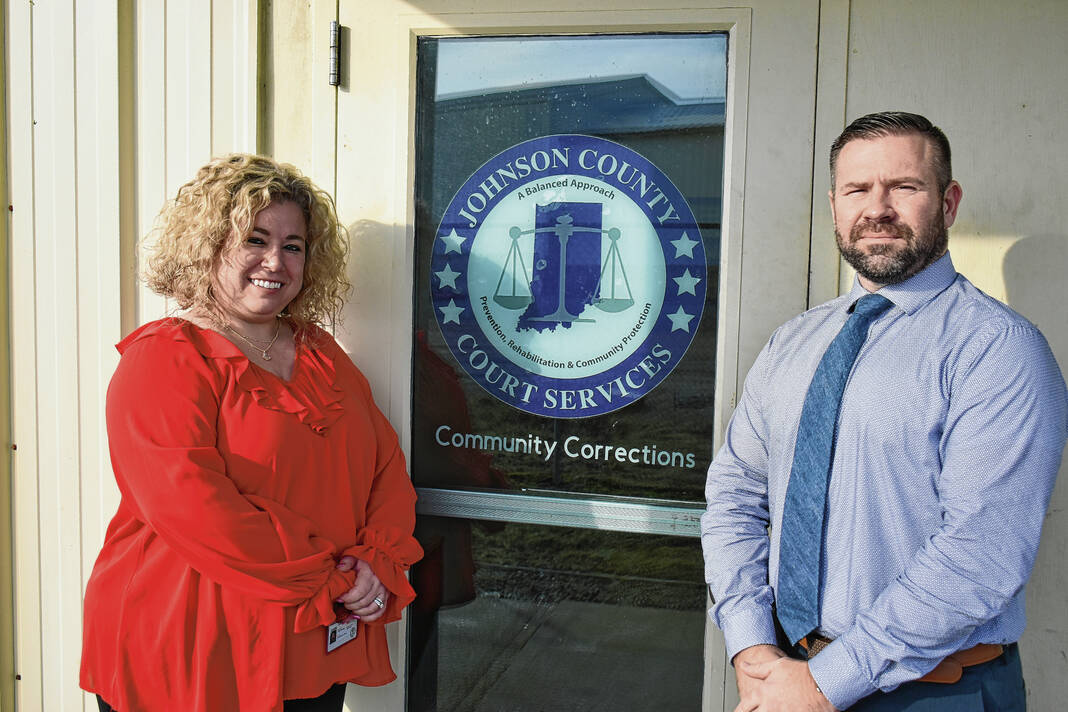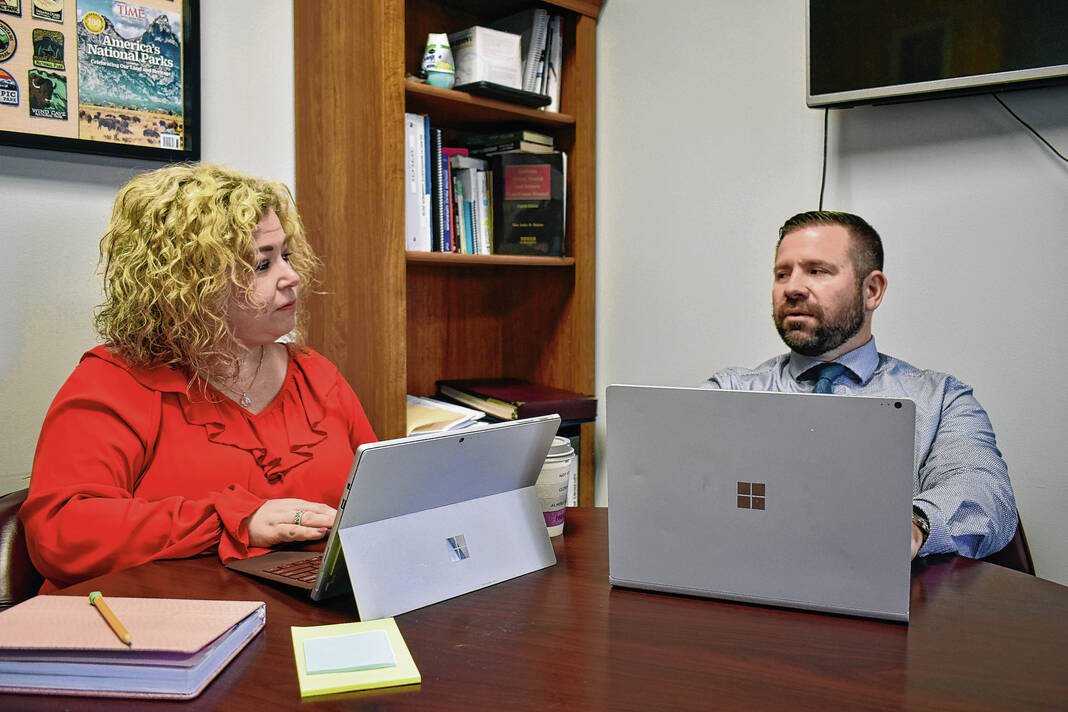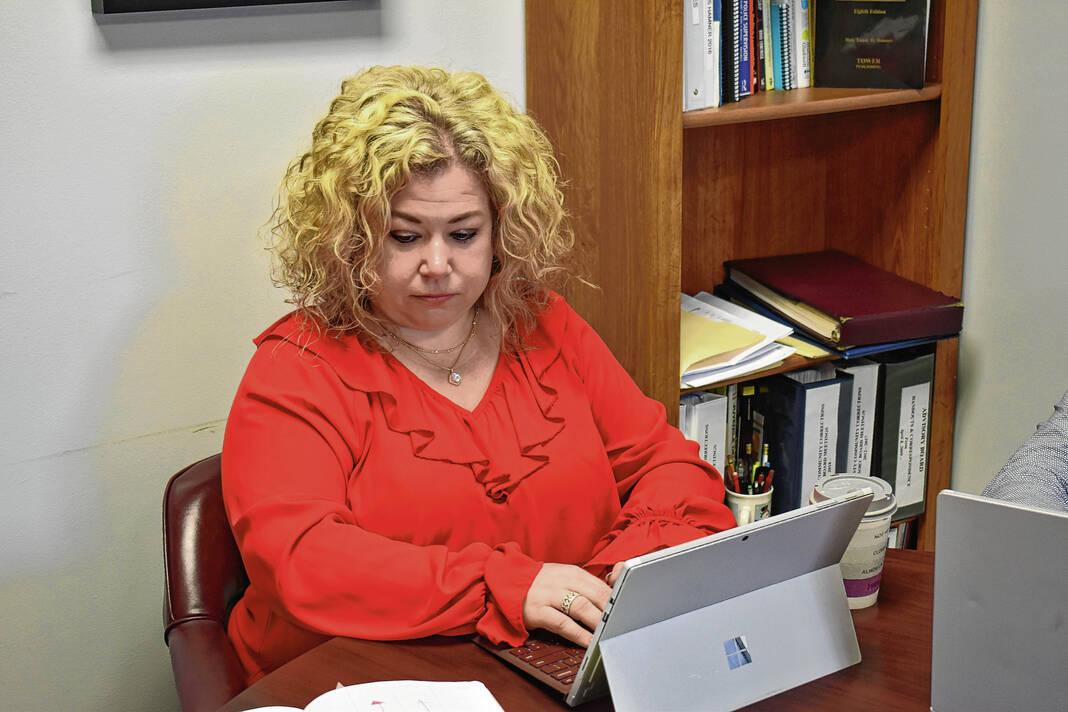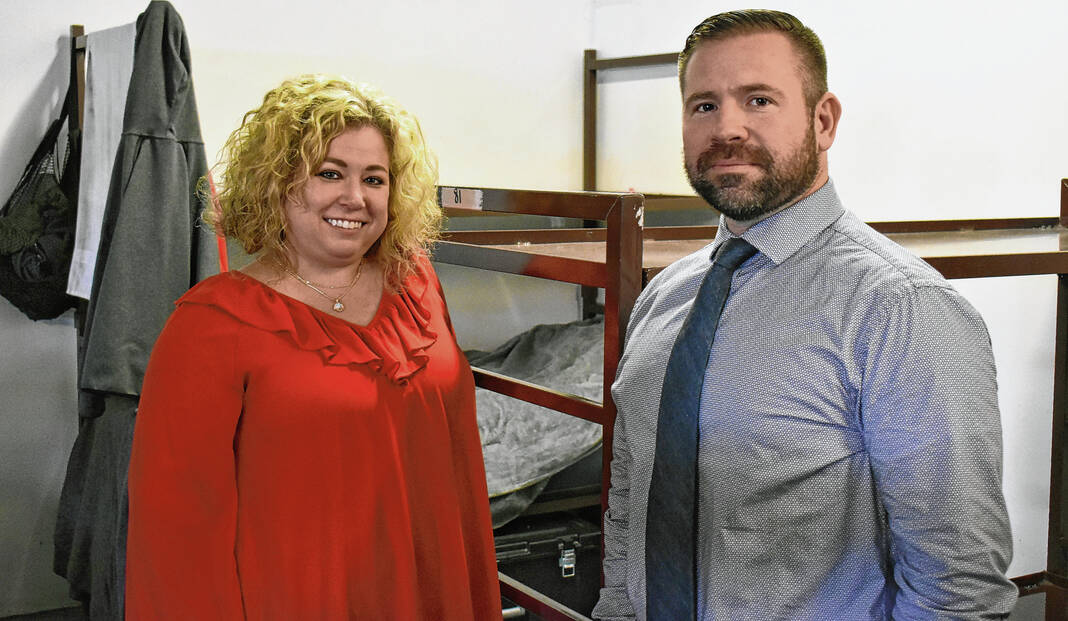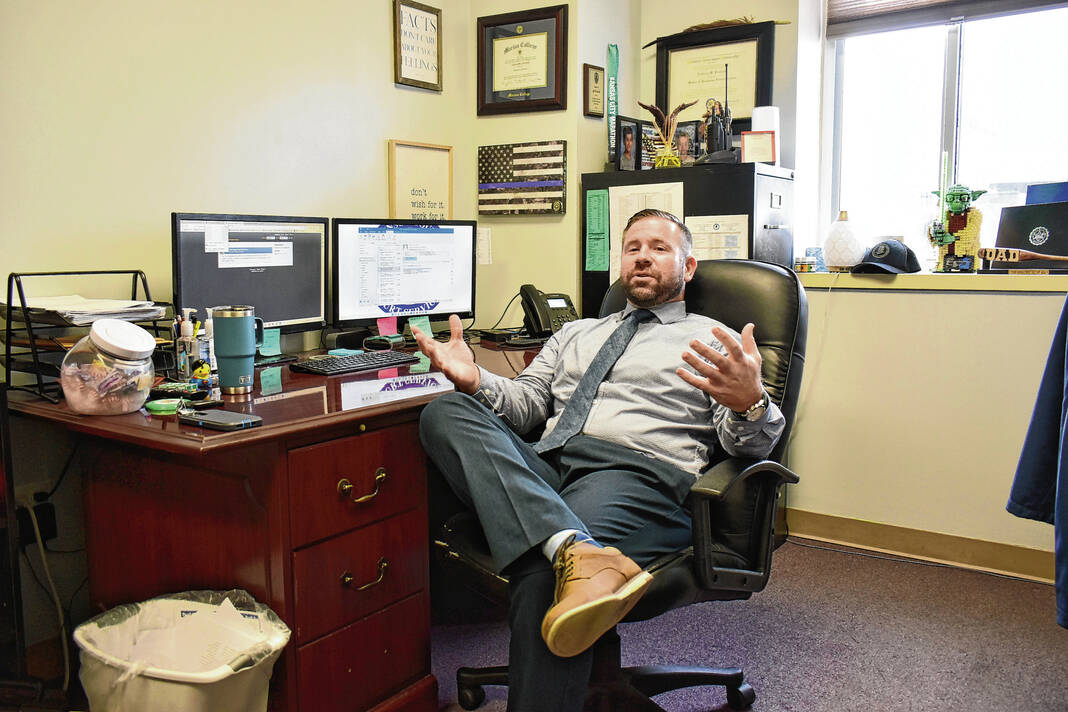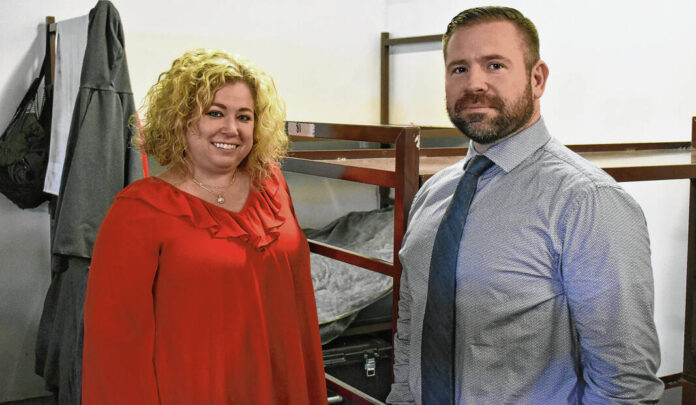
Johnson County Court Services Director/Chief Probation Officer Angela Morris, left, and Community Corrections Director Tony Povinelli pose for a photo inside a bunk room at Community Corrections on Feb. 8 in Franklin.
Noah Crenshaw | Daily Journal
Nearly a year after unifying Johnson County’s community corrections and probation departments under a single department, the benefits have already begun to materialize.
Johnson County Court Services was created last March, merging Community Corrections and Probation into a single department. While similar in many ways, Community Corrections is designed to fill a gap in offender supervision between jail and probation.
County officials pushed for the merger because it would reduce redundancies between the departments and streamline what the courts do daily.
“We were doing the same types of office visits, the same types of risk and needs assessments, we were referring people to the same programming,” said Angela Morris, director and chief probation officer for Johnson County Court Services.
Nearly one year on, many redundancies have been removed.
The formerly separate field teams for probation and community corrections have been combined. They also now have a shared program therapist to work with both probationers and community corrections participants, Morris said.
Additionally, the intake process for probationers and community corrections participants has been streamlined. Prior to the merger, both departments did their own intake processing, asking the same questions to offenders, she said.
“So a person on probation is hearing the same rules and conditions as the person that’s in community corrections on home detention and work release,” Morris said.
For Community Corrections specifically, several changes have been implemented by director Tony Povinelli, who started last March. Community Corrections is responsible for about 200 offenders, including 70 offenders who stay at the facility on work release, 120 who are on home detention and do check-ins and 16 people who require remote alcohol monitoring.
For example, when Povinelli started, the department wasn’t fully staffed with correctional officers. Now they are, he said.
“We didn’t start that way. We started way low,” Povinelli said.
They also now have six case managers, up from the about 1.5 case managers the department had before. As part of the merger of case management staff, community corrections adopted a model similar to probation where case managers are both meeting offenders and going to court to testify about them, Povinelli said.
Povinelli also brings a fresh perspective to community corrections staff. As a former Franklin police officer, he brings in an additional knowledge base from his time on the streets that he can pass on to his field staff. Field officers are considered special deputies, and receive their powers from Johnson County Sheriff Duane Burgess, he said.
“They do more than just violations,” Povinelli said. “I’ve been able to really get involved with them, figure out what they’re doing and get them going in the right direction.”
Not all of the changes at Community Corrections have been about streamlining procedures.
One field officer has been tasked with coordinating at least one community service project for offenders. For the projects, a group of about 10 offenders can volunteer to go to a church or municipality to do clean-up or repair projects, Povinelli said.
The reaction from offenders has been positive so far.
“I’ve had offenders telling me they feel good about it,” Povinelli said. “They’re able to give back to the community.”
Officials have also increased programming — therapy, counseling and treatment programs — for offenders. These programs are designed to help them improve their mental health and deal with substance abuse issues, he said.
In the past, many program slots would be left unfilled by offenders. This is no longer the case, Morris said.
Because Morris and Povinelli have been around the system for a long-time, they’ve developed relationships with the stakeholders such as the sheriff’s office, the Johnson County Prosecutor’s Office and local judges. These relationships have helped not only put trust back into community corrections but allowed them to hit the ground running, Povinelli said.
These relationships are paying off as judges are gaining more confidence in what court services is doing, and are becoming willing to put more offenders under court services’ supervision, he said.
Many people outside of the justice system think of offenders as a burden on taxpayers. However, for community corrections, the offenders pay the county to take part in the program, removing the burden, Povinelli said.
“The burden on the taxpayer is lifted off of them for any nonviolent offender that has something that they can contribute to our community with working or whatever else,” he said.
The goal of community corrections is to reduce recidivism and make the community safer by giving offenders a chance to re-acclimate themselves with society. Once their lives are stabilized, the community as whole benefits, Povinelli and Morris said.
“If we can stabilize them in the workplace, we can help financially stabilize them and mentally stabilize them,” Morris said. “We want them to buy into their community. Let’s help make them productive members of our community.”
Since the formation of court services and the appointment of a new community corrections director, Johnson County Sheriff Duane Burgess says communication has been the No. 1 improvement. Burgess is the president of the Johnson County Community Corrections Advisory Board.
Not only are things getting done in a timely and orderly fashion, but there’s also a new sense of professionalism that’s been brought to community corrections. Court services staff are really working with offenders to help get them an education and get them back on the street and become productive members of society, Burgess said.
“By bringing everybody together on that end, it ties in with the sheriff’s office and it completes that circuit,” he said. “It’s hard to describe how well it is. It’s a well-oiled machine.”
All the feedback the advisory board has received about the changes has been positive. Everyone in the judicial system is very happy with the direction both community corrections and court services are going, he said.
All that’s left is to continue to grow off the changes made and make court services even better, Burgess said.
“We’ve got great leadership throughout the county, and they want to see that particular portion of the judicial system grow,” he said. “We’re going to be the leaders in the state through our communication corrections program and court services.”


